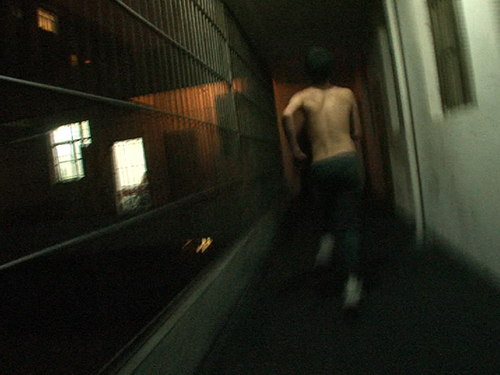
Wang Bing about Feng ai [’Til Madness Do Us Part]
Emmanuel Burdeau, Eugenio Renzi, 2013
“A mental hospital is not, as such, an original theme. The story told by ’Til Madness Do Us Part could just as well happen anywhere else. It is a common story. The fact remains that mental illness is of course an interesting subject, particularly in China. Somehow, mental illness frees mankind, as it liberates mankind from the yoke of the law. At the same time, it makes man more vulnerable... […] The life we see on the outside of an asylum is fundamentally not very different from the one we can see on the inside. What interested me was less the hospital than the patients and the life they were living... They don’t consider this place a mental hospital but the place in which they live. […] It is their house. That’s where they live as if it is their home. Some of them even stay there for the rest of their lives. Very early on, I was struck by the impression that in a lot of ways there is more humanity on the inside of a hospital than on the outside.”